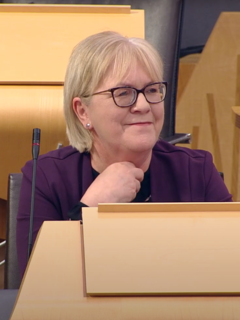A Quote by Winnie Byanyima
Governments should end the extreme concentration of wealth in order to end poverty. This means tackling tax dodging but also increasing taxes on wealth and high incomes to ensure a more level playing field and generate the billions of dollars needed to invest in healthcare, education, and job creation.
Quote Topics
Also
Billions
Billions Of Dollars
Concentration
Concentration Of Wealth
Creation
Dodging
Dollars
Education
End
Ensure
Extreme
Field
Generate
Governments
Healthcare
High
Increasing
Invest
Job
Job Creation
Level
Level Playing Field
Means
More
Needed
Order
Playing
Playing Field
Poverty
Should
Tackling
Tax
Taxes
Wealth
Related Quotes
If exclusive privileges were not granted, and if the financial system would not tend to concentrate wealth, there would be few great fortunes and no quick wealth. When the means of growing rich is divided between a greater number of citizens, wealth will also be more evenly distributed; extreme poverty and extreme wealth would be also rare.
It says anybody can make it, because we're all on a level playing field. But we're not on a level playing field. That 's precisely the point, and that's what the rich don't want to look at. They don't want to recognize that they're not producing wealth at all. They're hoarding wealth. That's different.
The form of law which I propose would be as follows: In a state which is desirous of being saved from the greatest of all plagues-not faction, but rather distraction-there should exist among the citizens neither extreme poverty nor, again, excessive wealth, for both are productive of great evil . . . Now the legislator should determine what is to be the limit of poverty or of wealth.
A tax system is important because of what it can pay for, but also for how it works. When we pay taxes, we expect something back from the state; it strengthens the relationship and accountability between us and our governments. It also pays for what private finance shouldn't: our needs for healthcare, education and social security.
The shipping industry plays a fundamental role in boosting global trade and prosperity. Maritime leaders have rightly recognised the need to invest in more energy-efficient vessels and to apply measures like slow-steaming. But to ensure a level playing field, collective action is urgently needed across the sector.
The Value-Added Tax, a sales tax that applies at every level of business transactions, is an easy tax for governments to collect, and a hard tax to evade. So it makes the job of raising revenue easier. The revenues from the VAT can then be used to lower taxes on income and saving and investment. The Value-Added tax doesn't penalize work or saving; it's a tax on buying stuff.
Until African-Americans and Hispanics can get serious, not just about area studies, which are important, but also about science and technology, they're not going to generate that wealth and that job within those communities. And that has absolutely devastating consequences for the places where people live, for the jobs and for the wealth.































